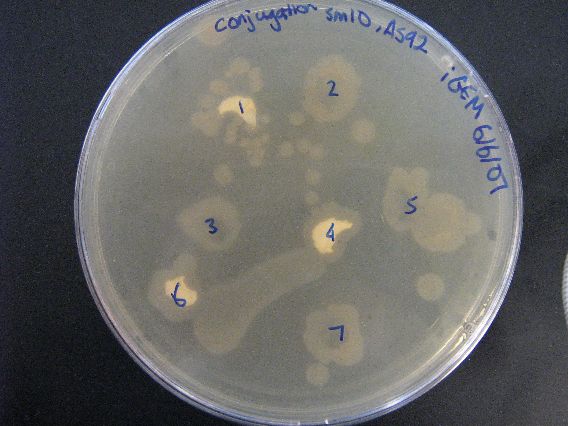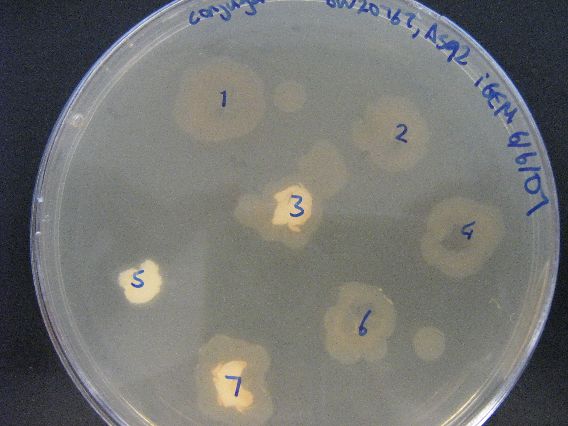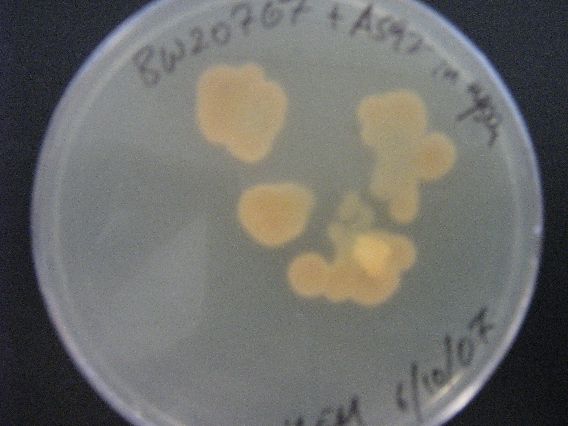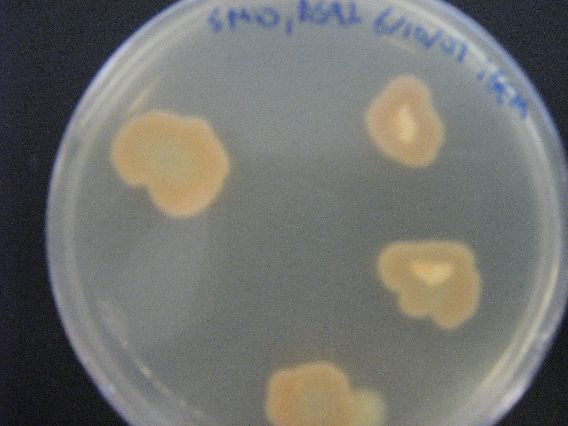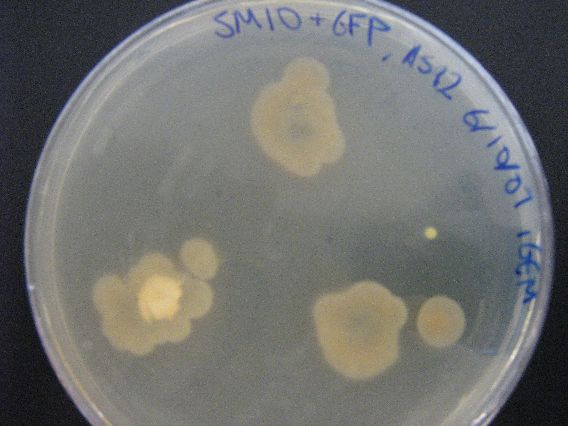Boston University/Bacterial Conjugation Results
From 2007.igem.org
(Difference between revisions)
| Line 8: | Line 8: | ||
[[Image:BU_conjugation1.jpg]] | [[Image:BU_conjugation1.jpg]] | ||
| + | |||
| + | Plate 1: 7 separate conjugation mixes were plated. The white is the filter upon which the bacteria conjugate. S. oneidensis is red. | ||
[[Image:BU_conjugation2.jpg]] | [[Image:BU_conjugation2.jpg]] | ||
| + | |||
| + | Plate 2: | ||
[[Image:BU_conjugation3.jpg]] | [[Image:BU_conjugation3.jpg]] | ||
| + | |||
| + | Plate 3: | ||
[[Image:BU_conjugation4.jpg]] | [[Image:BU_conjugation4.jpg]] | ||
| + | |||
| + | Plate 4: | ||
[[Image:BU_conjugation5.jpg]] | [[Image:BU_conjugation5.jpg]] | ||
| + | |||
| + | Plate 5: | ||
[[Boston University | Back]] | [[Boston University | Back]] | ||
Revision as of 16:27, 16 July 2007
Filter conjugation to transfer the plasmid pMS291(lacZ) from E.coli SM10 to S. oneidensis AS-92
- The plasmid pMS291 contained a kanamycin resistance gene. S. oneidensis has a native gentamicin resistance.
- The plasmid pMS291 is first transformed into E.coli SM10 and then the conjugation protocol is run to encourage conjugal transfer of the plasmid to S. oneidensis AS-92. A double-antibiotic selection method is used to select for successful S. onedensis transformants which have a resistance for both kanamycin and gentamicin.
Plate 1: 7 separate conjugation mixes were plated. The white is the filter upon which the bacteria conjugate. S. oneidensis is red.
Plate 2:
Plate 3:
Plate 4:
Plate 5:
